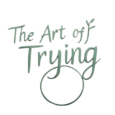I’ve always envied people who seem to glide through conversations effortlessly. You know the ones—their words flow, their laughter comes easily, and they navigate social situations like it’s second nature. Meanwhile, I’m calculating my next sentence, analyzing every reaction, and wondering if I sound weird.
Social anxiety is tricky. It convinces you that you’re being judged, that you’re awkward, that you’ll say something wrong. But here’s the truth: most people are too busy thinking about themselves to scrutinize your every word. And even if they notice a little awkwardness? They’ll forget it in minutes.
So, how do you talk to anyone without letting anxiety take over? Here’s what I’ve learned.
1. Stop Aiming for Perfection
One of the biggest lies social anxiety tells us is that we need to be perfect in conversations. No awkward pauses, no missteps, no weird phrasing. But let’s be real—even the most charismatic people fumble their words sometimes. The goal isn’t perfection. The goal is connection.
Some of the best conversations happen when you embrace a little imperfection. Laugh at yourself. Say “I totally lost my train of thought” if you need to. It makes you human, and people connect with that.
2. The Power of Body Language
Sometimes, confidence isn’t about what you say—it’s about how you carry yourself. You don’t need to feel confident to look confident. A few small tweaks can change how people perceive you (and how you feel in the moment):
✅ Stand or sit up straight
✅ Maintain eye contact (even if it feels uncomfortable at first)
✅ Relax your shoulders and unclench your hands
✅ Speak at a steady pace—don’t rush
Your body can trick your brain into feeling more at ease. And when you look self-assured, people will naturally respond to you differently.
3. Ask More, Talk Less
Feeling nervous? Shift the focus away from yourself. People love talking about themselves, and asking questions is an easy way to keep the conversation flowing without overthinking your own words. Try:
• “What’s the best thing that happened to you this week?”
• “How did you get into [their job/hobby]?”
• “What’s something you’re really passionate about?”
Not only does this keep the conversation going, but it also makes you more likable. Why? Because people associate good conversations with how they felt—if you made them feel interesting and valued, they’ll remember you in a positive way.
4. Use the ‘Fake It Till You Make It’ Trick
I used to think confidence was something you either had or didn’t. But confidence is just practice. The more you put yourself in social situations, the easier it gets.
Pretend, just for a moment, that you are the kind of person who talks easily with anyone. How would you act? How would you speak? Step into that version of yourself, even if it feels unnatural at first. With time, it will become second nature.
5. Silence Isn’t Your Enemy
If there’s one thing social anxiety hates, it’s silence. We scramble to fill it, blurting out anything just to keep the conversation alive. But silence isn’t a bad thing. It gives conversations natural rhythm, time to breathe.
Instead of panicking, take a sip of your drink, look around, smile. If there’s a pause, let it be. It’s not as awkward as it feels in your head.
6. The More You Do It, the Easier It Gets
I won’t lie—none of this happens overnight. But the only way to get comfortable with social interactions is to keep having them. Each time you step out of your comfort zone, it gets a little easier.
And here’s the thing: most people aren’t judging you the way you think they are. They’re just as focused on themselves as you are. They’re not keeping track of your awkward moments. They’re just living their lives, same as you.
So go ahead—start that conversation. Ask the question. Hold eye contact. Show up, even if you’re nervous.
Because the only way to truly get past social anxiety is to stop letting it control your life. And trust me—when you do, you’ll realize you were capable all along.
What’s your biggest struggle when it comes to social interactions? Let’s talk in the comments. You’re not alone in this. 💬✨



